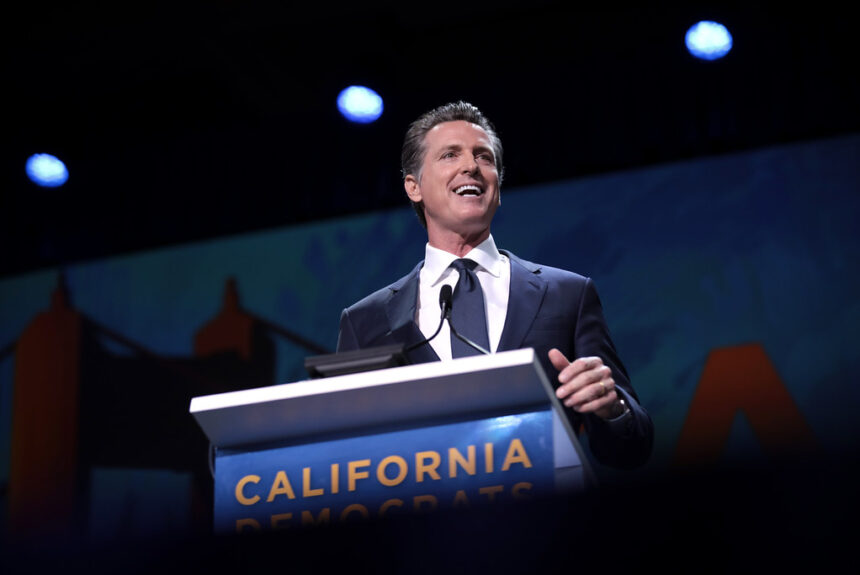Not long ago, California was considered the land of opportunity. The future was happening there. It had the best university system, the best weather, and jobs aplenty. People moved to the Golden State and found good fortune. A key reason for that was what was underground.
For example, at the turn of the 20th Century, a rancher in the La Brea area was drilling for water when he found something even more valuable: oil. This sort of thing just kept happening. Santa Fe Springs went from an orange grove to an oil field. As late as 1990, the Wilshire Country Club tried to drill a water well. And instead struck oil.
California was dotted with wells and refineries, creating jobs and opportunities for millions. The state was home to big oil producers including ARCO, Chevron, and, of course, Union Oil (Unocal). Two of those were purchased by out-of-state companies, while the third, Chevron, is now in oil-friendly Houston.
>>> Biden Says There’s a Wildfire Crisis, But Opposes a Common Sense Solution
In a real sense, it is the oil industry that built California. Where would the state be without the car?
But now California’s governor is convinced his state no longer needs any of that. “The California oil industry (which used to be America’s third largest) is being driven out of business,” writes Californian J. Chris Hall in The Wall Street Journal. “Our state now imports two-thirds of its oil from foreign countries.”
As a big step in that process, Gavin Newsom signed a law that Politico said gives the state the power to regulate the dwindling number of oil refineries. “They’ve been screwing you for years and years and years,” Newsom claimed.
Oh?
Newsom blames high gas prices in his state on the refining industry and says they are engaged in price gouging. But the reality is different. It is California’s climate policies that are gouging consumers by reducing energy choices and gouging consumers by imposing high taxes. The very politicians who imposed the painful regulations for little, if any, climate benefit, want to blame the industry for gouging and claim the solution would be: more regulations.
>>> Addressing Six Common Concerns of the Nuclear Naysayers
But Newsom and his regulators are suffering for their hypocrisy on climate policy. Phillips 66 will now close its refinery near L.A., which would take off-line nearly 10% of the remaining refining capacity in California. Meanwhile, the state demands a particular blend of gasoline, meaning that fuel there is not a commodity that can be shipped in from other states, but is instead a specialty product that must be produced to a certain standard.
It isn’t clear where Newsom and his self-proclaimed climate experts would want refining to be done. Perhaps China? That country already controls minerals mining and processing capacity and has the world’s second largest oil refining capacity. Even the rare earth minerals dug up at California’s Mountain Pass mine must be shipped to China for processing. Perhaps Newsom thinks we should give China more cards in the high-stakes game of energy security?
This outsourcing didn’t work in the 2000s, when many industries moved to China. Millions of Americans lost their jobs and much of the pollution ended up in California anyway. “We’ve outsourced our manufacturing and much of our pollution, but some of it is blowing back across the Pacific to haunt us,” a climate scientist warned in 2014.
Much the same thing happened in Germany around the same time, with the imposition of a bad energy policy that the country hasn’t recovered from.
Until 2011, that country got a quarter of its electricity from zero-emission nuclear plants. After an unrelated incident in Japan, Germany decided to shut down eight reactors that year, and phase out the rest. Now, it has no nuclear power generation.
In 2022 coal accounted for a third of Germany’s electricity production. It also burns wood, leading the New York Times to comment that the country “is sacrificing its ancient forests for energy.” It’s hardly an environmentally friendly trade-off. The result is higher prices and a weaker economy for a worse environmental outcome.
The planet is in the edge of an energy revolution, and the United States will lead it. If we allow the free market to operate, we will tap into zero emission sources such as solar, geothermal, and wind, but also small modular reactors and perhaps (sooner than you think) fusion.
California could be a leader, again, in the energy transition. But it needs competitive markets, not regulations, to remain in front.
The views and opinions expressed are those of the author’s and do not necessarily reflect the official policy or position of C3.
